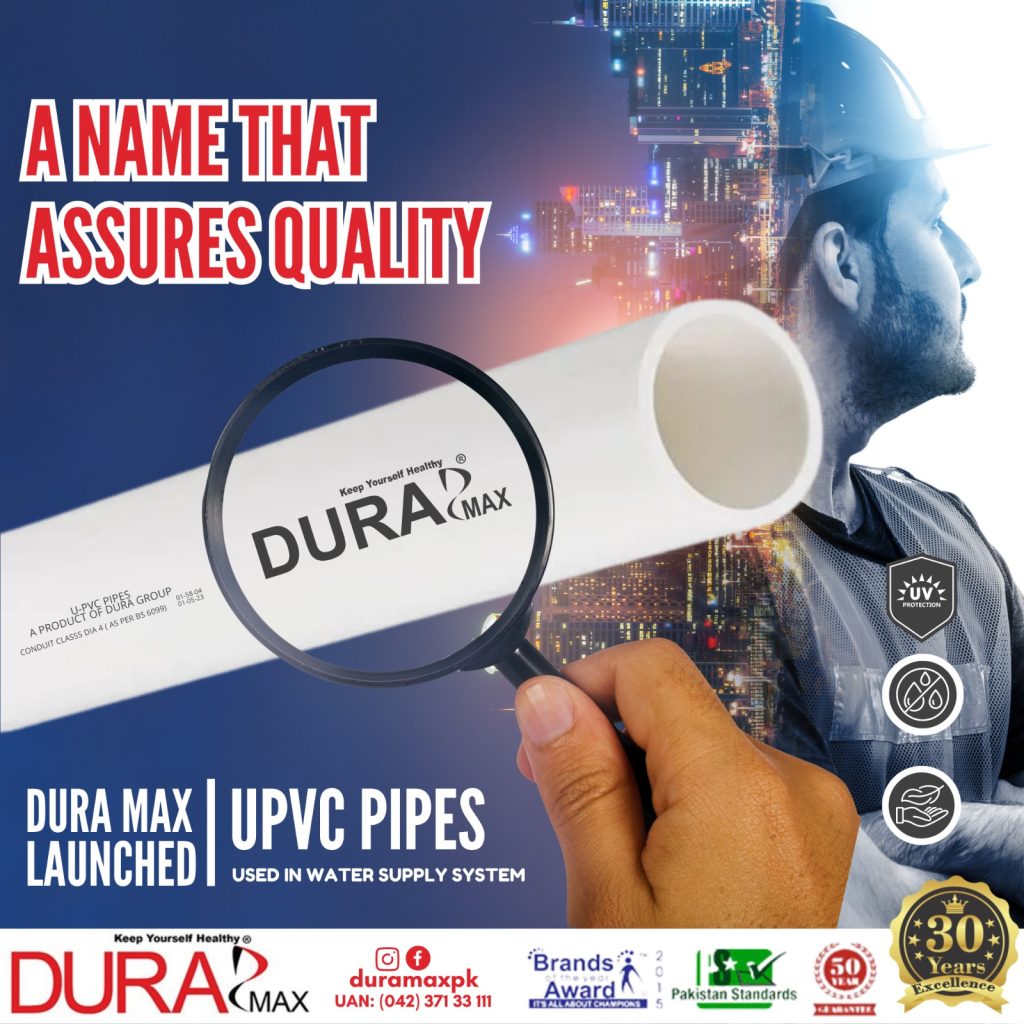In the world of construction and manufacturing, finding the right materials that balance durability, affordability, and environmental sustainability can be a challenge. One such material that has gained significant recognition is UPVC, short for Unplasticized Polyvinyl Chloride. UPVC is a versatile polymer known for its exceptional properties, making it a popular choice for a wide range of applications. In this blog, we will explore what UPVC is, its unique characteristics, and the benefits it offers across various industries.

- Understanding UPVC:
UPVC, or Unplasticized Polyvinyl Chloride, is a form of PVC that does not contain plasticizers. It is a rigid and durable material that retains the inherent properties of PVC while being stronger and more resistant to environmental factors. UPVC is created through a process of polymerization, where vinyl chloride monomers are combined to form long chains, resulting in a rigid and stable structure.
- Exceptional Durability:
One of the key advantages of UPVC is its exceptional durability. UPVC materials are highly resistant to weathering, corrosion, and chemical degradation, making them suitable for both indoor and outdoor applications. Unlike traditional PVC, UPVC does not become brittle over time, ensuring its longevity and structural integrity. This durability makes UPVC an ideal choice for products and structures that need to withstand harsh environmental conditions.
- Thermal Insulation Properties:
UPVC is an excellent thermal insulator, making it highly energy-efficient. Its low thermal conductivity helps to maintain stable temperatures within buildings, reducing heat loss in colder climates and minimizing heat gain in warmer regions. UPVC windows and doors, for example, provide superior insulation, helping to improve energy efficiency and reduce heating and cooling costs. These properties make UPVC an environmentally friendly choice that contributes to sustainable building practices.
- Impressive Chemical Resistance:
UPVC exhibits remarkable resistance to a wide range of chemicals, including acids, alkalis, and salts. This chemical resistance makes it suitable for applications in industries such as chemical processing, water treatment, and agricultural settings. UPVC pipes and fittings are commonly used in plumbing systems due to their ability to withstand corrosive substances and provide a reliable, long-lasting solution.
- Low Maintenance and Longevity:
Another advantage of UPVC is its low maintenance requirements. Unlike some materials that require regular painting or sealing, UPVC is inherently resistant to rot, rust, and UV degradation. It does not require painting, and its color remains vibrant even after prolonged exposure to sunlight. UPVC’s longevity and resistance to environmental factors make it a cost-effective choice that saves both time and money over the long term.
- Eco-Friendly Material:
UPVC is considered an eco-friendly material due to several reasons. Firstly, it is recyclable, meaning that at the end of its life cycle, it can be reprocessed and used in the production of new UPVC products. Additionally, the production of UPVC consumes less energy compared to other materials, reducing its carbon footprint. Furthermore, UPVC’s durability and resistance to chemical degradation contribute to waste reduction by minimizing the need for frequent replacements.
Conclusion:
UPVC, or Unplasticized Polyvinyl Chloride, is a versatile material known for its durability, thermal insulation properties, chemical resistance, and low maintenance requirements. From windows and doors to plumbing systems and agricultural applications, UPVC has established itself as a reliable and cost-effective choice in various industries. Its eco-friendly characteristics further contribute to sustainable practices and environmental conservation. Understanding the benefits of UPVC opens up opportunities for innovative and sustainable solutions across different sectors.


